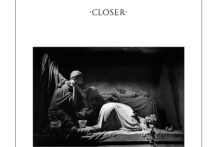“This rap shit done saved my life, and fucked it up at the same time,” Danny Brown begins somberly on the title track of his sixth studio album. As far as opening lines go, it’s a perfect encapsulation of what lies at the emotional core of Quaranta – honesty, remorse and unfettered reflection.
Translated to 40 in Italian, the album’s title refers to Brown’s 40 years but is also a nod to the experience of quarantine and the isolation of that period that forced so many of us to come face to face with our demons. For Brown, there have forever been personal demons bubbling directly below the surface that have long threatened to emerge and fully eclipse the audaciousness and comedic cheek commonly associated with his character. But as we hear on this album, it was lockdown that provided the ideal breeding ground for such an internal battle.
That’s not to say that Brown hasn’t been open about his struggles with his mental health and addiction in the past. 2011’s XXX heavily detailed excess and debauchery, while Atrocity Exhibition a few years later, taking its title from a Joy Division song (which is itself named after a J.G. Ballard novel), looked at the darkness of hedonism and substance abuse. The difference now is that with the bulk of Quaranta written during the pandemic lockdowns of 2021 and with the album arriving after Brown’s own stint in rehab earlier this year, it feels as if the rapper is in the process of simultaneously quietening and tackling those demons head on.
As one of Detroit’s finest modern-day storytellers, Brown has garnered a reputation for his frenetic and off-kilter delivery, which has served him well across five albums, not to mention this year’s collaborative project with JPEGMafia, Scaring the Hoes. But behind the distinctive bravado, oddball sense of humour and chaotic persona, there has always been an element of anguish, with his manic lyricism offering hints of his depression, self-medication and trauma.
“I got to the point where I was pretty much suicidal,” the rapper recently told the Guardian’s Will Pritchard, speaking about his lowest point in 2020. And it was the catalyst to real change in Brown’s life, allowing him to pour everything into his creativity and into sober living. As a result, Quaranta is without a doubt Brown’s most personal work to date, equal parts confessional and curative in its mission statement.
Opening track ‘Quaranta’ is diaristic in its emotional foundations, with Brown laying bare where he finds himself at 40, in the years following the release of his breakout album XXX. His usually high-pitched, excitable vocals are subdued here, accompanied by jangling guitar lines that would feel at home on an Ennio Morricone soundtrack. It’s a slow and dignified introduction, but likewise cinematic in its illustration of a life that has reached a clear intersection, falling somewhere between survival and utter destruction.
As the album moves on to lead single ‘Tantor’, we see a return to Brown’s signature idiosyncratic delivery, with repetitive industrial guitars accompanying his exaggerated and punchy rapping, as well as providing a hint of the goofiness we’ve come to expect from a standard Danny Brown number – evidence of which is found in the track’s inclusion of a well-known Michael Scott sample from The Office, which sits casually amidst The Alchemist’s looping production.
The rock-rap influenced backdrop on ‘Tantor’ appears elsewhere on the album, including on the cosmic ‘Dark Sword Angel’, meanwhile ‘Jenn’s Terrific Vacation’ features the spiky jazz drums of Kassa Overall beneath Brown’s fast and furious observations on a changing downtown Detroit.
‘Ain’t My Concern’, with its flashes of ominous synths in the background, has the air of a TV sitcom murder mystery, with Brown acting as a fabled chronicler, laying out the story’s premise. We see this again on the ambient and candid ‘Down Wit It’, where Brown the raconteur divulges his feelings on love and regret. The rapper’s trademark wordplay and lyrical turns are ever-present in Quaranta, lines like “I used to sell a bit, but I don’t fuck around no more, I’m celibate,” on ‘Celibate’ highlighting that sobriety has had no ill-effect on his natural wit.
With guest features from Bruiser Wolf, Kassa Overall and MIKE, plus production from Quelle Chris, Paul White, SKYWLKR, The Alchemist and others, Brown has brought in some of his most trusted collaborators for an album that takes stock of life on an upward trajectory and a rap career that has survived against all odds. The album on the whole is extremely autobiographical – there’s scenes from Brown’s childhood and his family life peppered in ‘Y.B.P.’, while ‘Shakedown’ offers a hazy, mellow meditation. ‘Bass Jam’ is a slow burning finale to the record, as we return to Brown’s measured flow from the opener. The track, with its silky bass and delicate instrumental, eventually veers off into nothing but in its cavernous spaces, we feel as though we’ve gone full circle with Brown, ending on a musical ellipsis that indicates the story is still to be completed.
In the aforementioned Guardian interview, Brown noted: “I feel like with this album coming out, and seeing how much depression and shit I was going through with making that album, you get like a happy ending at the end of the movie, seeing where I’m at in my life right now.” Quaranta sees Brown surpassing expectations once more, delivering a record that gives us an insight into his true inner monologue during an intense period of growth and personal reckoning. But while it’s a happy ending as far as his sobriety goes, it feels more like the start of an entirely new chapter, one that begins without Brown compromising his avant-garde rap stylings, his original voice or his individualism.






